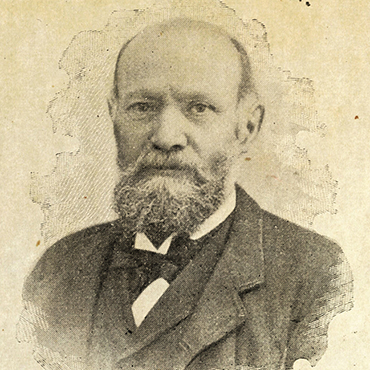Alarico Carli was born in Florence, but at the age of seven he left the city for the Casentino area, to where his family had moved and where he studied the classics and also experienced the passions of the early Risorgimento. He returned to Florence to study at the Accademia di Belle Arti under the direction of Giuseppe Bezzuoli (who, incidentally, painted one of the most famous frescoes in the Tribune of Galileo in the Specola of Florence) and came into contact with liberal circles. He volunteered in 1848 and fought at Montanara, but the breakup of the army of Tuscany brought him back to Florence, after a short period with the forces of Lombardy.
His artistic work was accompanied by scholarly activities: the meeting with Prince Baldassarre Boncompagni, arranged by Carli’s brother Evandro, was the springboard that launched him towards research and familiarity with the major libraries of Europe. Besides his studies, Carli played a part in the National Guard as an officier and was also involved in an intense social activity, contributing to the foundation of schools for the working class, for which he offered his services as a volunteer teacher.
After working in the Ufficio d’Arte of the municipality of Florence, in 1884 he moved to the Accademia della Crusca as a general helper, and in 1887 he started working in the Biblioteca Nazionale di Firenze as an assistant on the national edition of Galileo that was being prepared by Isidoro Del Lungo and Antonio Favaro. He also worked with Favaro on the compilation of the Bibliografia galileiana. In 1891 he joined the Biblioteca Nazionale with the special task of arranging and cataloguing correspondence, which was intended for a project entitled Archivio della letteratura italiana. This was a task to which, having become disillusioned with politics, he devoted the rest of his life.
He was a friend of Raffaello Caverni, with whom for a certain period he shared a hidden hostility towards Antonio Favaro, the result of mutual misunderstandings. During his daily work at the Biblioteca Nazionale, he often helped Caverni to find and transcribe documents. He died in Florence in 1900, struck down by a heart attack while he was walking in the street.

